Debt-financed government spending—even with low interest rates—imposes real costs on Canadians and the economy
VANCOUVER—Contrary to what many Canadians, and interestingly some policymakers and even economists think, debt-financed government spending has real economic costs, even when interest rates are very low, finds a new study by the Fraser Institute, an independent, non-partisan Canadian public policy think-tank. “There is no free lunch when it comes to debt-financed government spending. Even with record low interest rates, there are real costs imposed on the economy and Canadians,” said Bev Dahlby, a senior fellow with the Fraser Institute and co-author of The Fiscal Costs of Debt-Financed Government Spending.- Thursday, July 7, 2022


 VANCOUVER—Earlier this week, the federal government announced the first phase of its plan to reach zero plastic waste by 2030, which will have little to no environmental benefit while imposing a large financial cost on Canadians, finds a new study published by the Fraser Institute, an independent, non-partisan Canadian public policy think-tank.
"Canada's contribution to the global issue of aquatic plastic pollution is virtually non-existent, but banning plastic—almost all of which is properly disposed of in Canada—will impose high costs on Canadians and will actually result in more waste being generated," said Kenneth P. Green, senior fellow at the Fraser Institute and author of
VANCOUVER—Earlier this week, the federal government announced the first phase of its plan to reach zero plastic waste by 2030, which will have little to no environmental benefit while imposing a large financial cost on Canadians, finds a new study published by the Fraser Institute, an independent, non-partisan Canadian public policy think-tank.
"Canada's contribution to the global issue of aquatic plastic pollution is virtually non-existent, but banning plastic—almost all of which is properly disposed of in Canada—will impose high costs on Canadians and will actually result in more waste being generated," said Kenneth P. Green, senior fellow at the Fraser Institute and author of 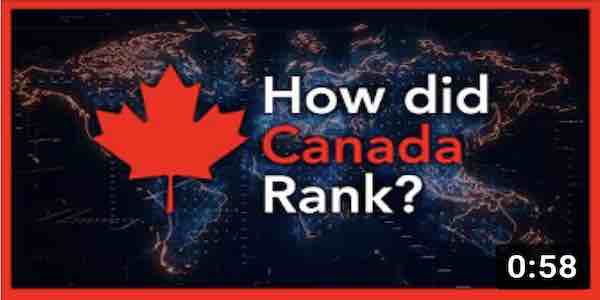 VANCOUVER—Canada experienced the second highest increase in its total debt relative to the size of the economy (GDP) from 2019 to 2021 compared to 33 industrialized countries, behind only Japan, finds a new study published by the Fraser Institute, an independent, non-partisan Canadian public policy think-tank.
“Despite Canada’s comparatively high debt accumulation during the pandemic, which many argued would result in strong economic performance, we actually underperformed most of our peers,” said Tegan Hill, economist at the Fraser Institute and co-author of
VANCOUVER—Canada experienced the second highest increase in its total debt relative to the size of the economy (GDP) from 2019 to 2021 compared to 33 industrialized countries, behind only Japan, finds a new study published by the Fraser Institute, an independent, non-partisan Canadian public policy think-tank.
“Despite Canada’s comparatively high debt accumulation during the pandemic, which many argued would result in strong economic performance, we actually underperformed most of our peers,” said Tegan Hill, economist at the Fraser Institute and co-author of 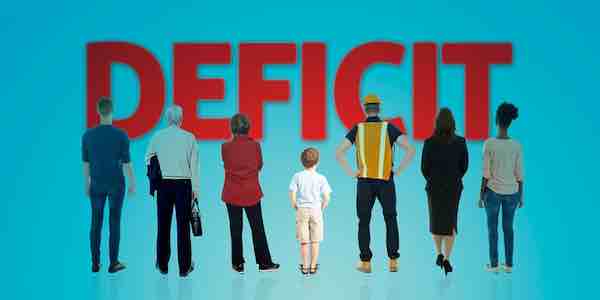 VANCOUVER—As the Bank of Canada seeks to reduce inflation by increasing interest rates, interest costs on government debt—including federal debt—will also rise, finds a new essay published today by the Fraser Institute, an independent, non-partisan Canadian public policy think-tank.
“While the federal government continues to borrow money to fund high levels of spending, the cost of servicing Ottawa’s growing debt is poised to increase if interest rates continue to rise,” said Philip Cross, former chief economic analyst at Statistics Canada, senior fellow at the Fraser Institute and author of
VANCOUVER—As the Bank of Canada seeks to reduce inflation by increasing interest rates, interest costs on government debt—including federal debt—will also rise, finds a new essay published today by the Fraser Institute, an independent, non-partisan Canadian public policy think-tank.
“While the federal government continues to borrow money to fund high levels of spending, the cost of servicing Ottawa’s growing debt is poised to increase if interest rates continue to rise,” said Philip Cross, former chief economic analyst at Statistics Canada, senior fellow at the Fraser Institute and author of 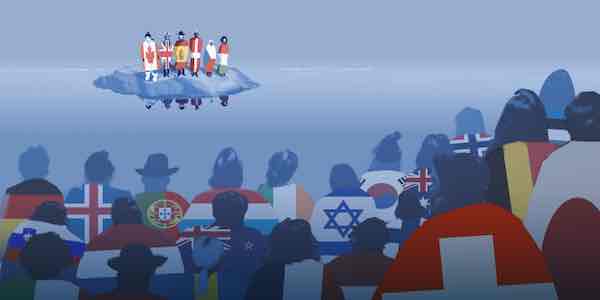 VANCOUVER—Among 28 industrialized countries in the world with universal health-care, Canada is only one of six that does not use any form of cost-sharing for core medical services, which can be used to incentivize more efficient use of scarce health resources and potentially reduce wait times, finds a new study published by the Fraser Institute, an independent, non-partisan Canadian public policy think-tank.
Despite ranking amongst the most expensive universal health care systems in the developed world, comprehensive measures of performance indicate that Canada routinely lags behind its international peers in key metrics of health care performance, such as the availability of doctors and hospital beds, and wait times for medically necessary care.
VANCOUVER—Among 28 industrialized countries in the world with universal health-care, Canada is only one of six that does not use any form of cost-sharing for core medical services, which can be used to incentivize more efficient use of scarce health resources and potentially reduce wait times, finds a new study published by the Fraser Institute, an independent, non-partisan Canadian public policy think-tank.
Despite ranking amongst the most expensive universal health care systems in the developed world, comprehensive measures of performance indicate that Canada routinely lags behind its international peers in key metrics of health care performance, such as the availability of doctors and hospital beds, and wait times for medically necessary care.
 VANCOUVER—As Canada’s population ages, the number of working-aged Canadians relative to the number of seniors has declined from 5.4 in 2000 to 3.4 in 2022, which means government spending related to demographics is increasing at the same time that the growth in tax revenues is declining, finds a new study by the Fraser Institute, an independent, non-partisan Canadian public policy think-tank.
“Workers pay the bulk of taxes, which governments need to fund important services, including health care and income transfers to seniors. As the relative number of seniors grows, and the relative number of workers declines, government finances across Canada will be put under increasing strain,” said Ben Eisen, senior fellow at the Fraser Institute and co-author of Understanding the Changing Ratio of Working-Age Canadians to Seniors and Its Consequences.
VANCOUVER—As Canada’s population ages, the number of working-aged Canadians relative to the number of seniors has declined from 5.4 in 2000 to 3.4 in 2022, which means government spending related to demographics is increasing at the same time that the growth in tax revenues is declining, finds a new study by the Fraser Institute, an independent, non-partisan Canadian public policy think-tank.
“Workers pay the bulk of taxes, which governments need to fund important services, including health care and income transfers to seniors. As the relative number of seniors grows, and the relative number of workers declines, government finances across Canada will be put under increasing strain,” said Ben Eisen, senior fellow at the Fraser Institute and co-author of Understanding the Changing Ratio of Working-Age Canadians to Seniors and Its Consequences.
 VANCOUVER—The federal government could improve First Nations entrepreneurship, which is key to prosperity, by further removing barriers to property rights within the Indian Act, finds a new study published by the Fraser Institute, an independent, non-partisan Canadian public policy think-tank.
VANCOUVER—The federal government could improve First Nations entrepreneurship, which is key to prosperity, by further removing barriers to property rights within the Indian Act, finds a new study published by the Fraser Institute, an independent, non-partisan Canadian public policy think-tank.
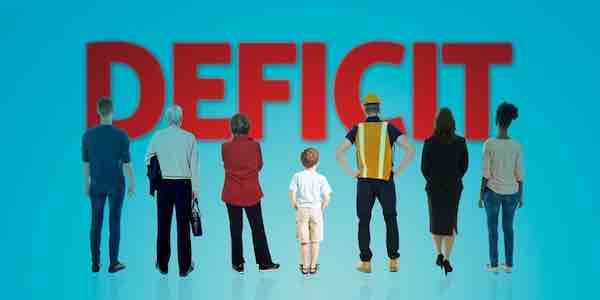 VANCOUVER—As the height of the COVID-19 pandemic passes and temporary support programs wind down, governments in Canada should be moving aggressively towards balanced budgets and even surpluses to pay down debt rather than continuing to borrow, finds a new essay released by the Fraser Institute, an independent, non-partisan Canadian public policy think-tank.
The essay notes that the federal government recorded a $327.7 billion deficit in 2020-21 and a deficit of $113.8 billion in 2021-22. This is 27.8 per cent larger than the deficit incurred in the aftermath of the 2008-09 recession despite a strong recovery.
VANCOUVER—As the height of the COVID-19 pandemic passes and temporary support programs wind down, governments in Canada should be moving aggressively towards balanced budgets and even surpluses to pay down debt rather than continuing to borrow, finds a new essay released by the Fraser Institute, an independent, non-partisan Canadian public policy think-tank.
The essay notes that the federal government recorded a $327.7 billion deficit in 2020-21 and a deficit of $113.8 billion in 2021-22. This is 27.8 per cent larger than the deficit incurred in the aftermath of the 2008-09 recession despite a strong recovery.
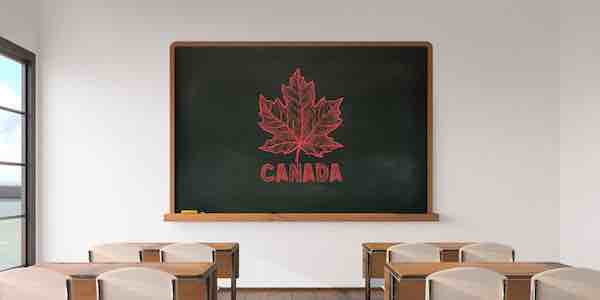 VANCOUVER—Provincewide testing of K-12 students in most provinces could be improved by ensuring the tests are consistent, transparent, and count toward students’ grades or academic progression, finds a new study released today by the Fraser Institute, an independent, non-partisan Canadian public policy think-tank.
“The decline of standardized testing in Canada has reduced the availability of important data that’s essential to understand how our education system performs and how to best help students improve,” said Paige MacPherson, associate director of education policy at the Fraser Institute and co-author of
VANCOUVER—Provincewide testing of K-12 students in most provinces could be improved by ensuring the tests are consistent, transparent, and count toward students’ grades or academic progression, finds a new study released today by the Fraser Institute, an independent, non-partisan Canadian public policy think-tank.
“The decline of standardized testing in Canada has reduced the availability of important data that’s essential to understand how our education system performs and how to best help students improve,” said Paige MacPherson, associate director of education policy at the Fraser Institute and co-author of 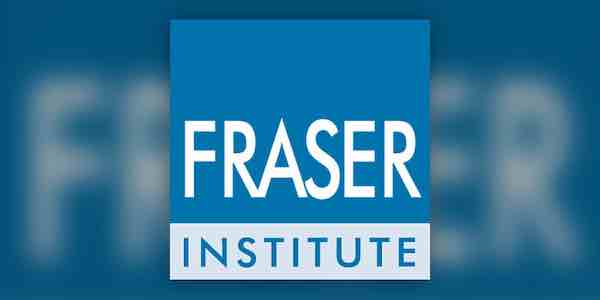
 VANCOUVER—Support plummets to well below half of Canadians for new federal government programs, including dental care, pharmacare and $10-a-day daycare when the taxes needed to pay for them are included, finds a new Leger poll commissioned by the Fraser Institute, an independent, non-partisan Canadian public policy think-tank.
All three programs were included or committed to in the recent federal budget.
VANCOUVER—Support plummets to well below half of Canadians for new federal government programs, including dental care, pharmacare and $10-a-day daycare when the taxes needed to pay for them are included, finds a new Leger poll commissioned by the Fraser Institute, an independent, non-partisan Canadian public policy think-tank.
All three programs were included or committed to in the recent federal budget.
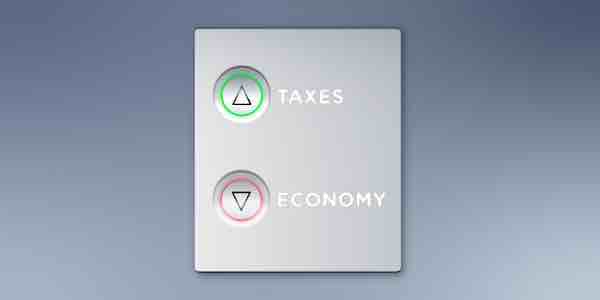 VANCOUVER—For an additional ($1) dollar of personal income tax revenue collected by the federal government, $2.86 is lost in economic activity because of less investment, less entrepreneurship, less spending and other behavioural changes that shrink the tax base, finds a new study released today by the Fraser Institute, an independent, non-partisan Canadian public policy think-tank.
VANCOUVER—For an additional ($1) dollar of personal income tax revenue collected by the federal government, $2.86 is lost in economic activity because of less investment, less entrepreneurship, less spending and other behavioural changes that shrink the tax base, finds a new study released today by the Fraser Institute, an independent, non-partisan Canadian public policy think-tank.
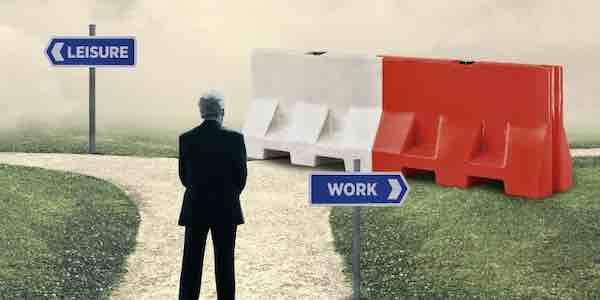 VANCOUVER—If governments in Canada want to help seniors who want to continue working, they should remove barriers that discourage them from remaining in the workforce, finds a new study released today by the Fraser Institute, an independent, non-partisan Canadian public policy think-tank.
“All Canadians, no matter their age, should be free to make their own choices about working without government limiting those choices or essentially penalizing those who want to work,” said Morley Gunderson, professor emeritus of economics at the University of Toronto and author of
VANCOUVER—If governments in Canada want to help seniors who want to continue working, they should remove barriers that discourage them from remaining in the workforce, finds a new study released today by the Fraser Institute, an independent, non-partisan Canadian public policy think-tank.
“All Canadians, no matter their age, should be free to make their own choices about working without government limiting those choices or essentially penalizing those who want to work,” said Morley Gunderson, professor emeritus of economics at the University of Toronto and author of  VANCOUVER—Long waits for surgery and medical treatment cost Canadians almost $4.1 billion in lost wages and productivity last year (2021), finds a new study released today by the Fraser Institute, an independent, non-partisan Canadian public policy think-tank.
Preliminary data suggest that an estimated 1.4 million patients waited for medically necessary treatment last year, and each lost an estimated $2,848 (on average) due to lost wages and reduced productivity during working hours.
VANCOUVER—Long waits for surgery and medical treatment cost Canadians almost $4.1 billion in lost wages and productivity last year (2021), finds a new study released today by the Fraser Institute, an independent, non-partisan Canadian public policy think-tank.
Preliminary data suggest that an estimated 1.4 million patients waited for medically necessary treatment last year, and each lost an estimated $2,848 (on average) due to lost wages and reduced productivity during working hours.
 VANCOUVER—The Bank of Canada this week raised its interest rate to combat inflation, which has reached levels not seen in decades, and yet the causes, consequences—and crucially, the beneficiaries—of inflation remain largely unknown to many Canadians, argues a new study released today by the Fraser Institute, an independent, non-partisan Canadian public policy think-tank.
VANCOUVER—The Bank of Canada this week raised its interest rate to combat inflation, which has reached levels not seen in decades, and yet the causes, consequences—and crucially, the beneficiaries—of inflation remain largely unknown to many Canadians, argues a new study released today by the Fraser Institute, an independent, non-partisan Canadian public policy think-tank.
 CALGARY—Saskatchewan remains Canada’s top-rated jurisdiction for mining investment, finds a new study released today by the Fraser Institute, an independent, non-partisan Canadian public policy think-tank.
“The Fraser Institute’s mining survey is the most comprehensive report on government policies that either encourages or discourages mining investment, and Saskatchewan remains not only the top choice in Canada, but second overall globally,” said Elmira Aliakbari, director of the Fraser Institute’s Centre for Natural Resource Studies and co-author of the study.
CALGARY—Saskatchewan remains Canada’s top-rated jurisdiction for mining investment, finds a new study released today by the Fraser Institute, an independent, non-partisan Canadian public policy think-tank.
“The Fraser Institute’s mining survey is the most comprehensive report on government policies that either encourages or discourages mining investment, and Saskatchewan remains not only the top choice in Canada, but second overall globally,” said Elmira Aliakbari, director of the Fraser Institute’s Centre for Natural Resource Studies and co-author of the study.
 VANCOUVER—If the federal government, which plans to table its next budget this week, wants to fund a major expansion of government, it simply can’t raise enough tax revenue solely from Canada’s upper-income families, finds a new study released today by the Fraser Institute, an independent, non-partisan Canadian public policy think-tank.
“To generate sufficient revenue to significantly increase federal spending, Ottawa must raise taxes on Canadians across a broad income spectrum, not just top earners,” said Ben Eisen, senior fellow at the Fraser Institute and author of
VANCOUVER—If the federal government, which plans to table its next budget this week, wants to fund a major expansion of government, it simply can’t raise enough tax revenue solely from Canada’s upper-income families, finds a new study released today by the Fraser Institute, an independent, non-partisan Canadian public policy think-tank.
“To generate sufficient revenue to significantly increase federal spending, Ottawa must raise taxes on Canadians across a broad income spectrum, not just top earners,” said Ben Eisen, senior fellow at the Fraser Institute and author of